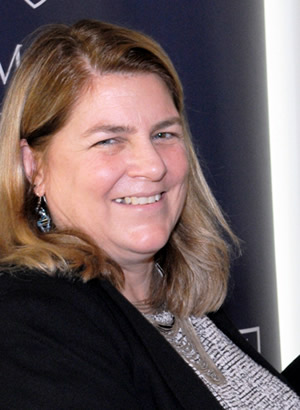 Dr. Anita Corbett is a Professor of Biology at Emory University. The Corbett Lab studies RNA binding proteins and regulatory factors linked to human disease. At a recent meeting, she described her research as “model system fluid” because her lab works with a variety of different model systems, “employing budding yeast to explore fundamental biology, Drosophila to assess tissue-specific functions, and primary cells/cell lines to extend the work into relevant tissue models. This combined approach allows rapid analysis in budding yeast that can inform studies in flies and eventually provide information about the most critical mouse models to develop.” An important component of her research is based on collaboration with clinicians and scientist that emerge from the GeneMatcher® platform. This platform connects a range of disciplines, and, she explained, “We use the information that comes from these connections to perform genome editing and assess the functional consequences of amino acid changes that cause disease.”
Dr. Anita Corbett is a Professor of Biology at Emory University. The Corbett Lab studies RNA binding proteins and regulatory factors linked to human disease. At a recent meeting, she described her research as “model system fluid” because her lab works with a variety of different model systems, “employing budding yeast to explore fundamental biology, Drosophila to assess tissue-specific functions, and primary cells/cell lines to extend the work into relevant tissue models. This combined approach allows rapid analysis in budding yeast that can inform studies in flies and eventually provide information about the most critical mouse models to develop.” An important component of her research is based on collaboration with clinicians and scientist that emerge from the GeneMatcher® platform. This platform connects a range of disciplines, and, she explained, “We use the information that comes from these connections to perform genome editing and assess the functional consequences of amino acid changes that cause disease.”
Prof. Corbett earned a PhD from Vanderbilt University in the lab of Dr. Neil Osheroff and completed her postdoctoral training at Harvard Medical School under the mentorship of Dr. Pamela Silver. During her career, Prof. Corbett was “fortunate to benefit from outstanding mentoring in the RNA field. Some of my key role models and mentors include eminent scientists such as Anita Hopper, Tom Cech, Joan Steitz, and Lynne Maquat.” These scientists taught her the key piece of advice she received in her own training: “study a problem, not a protein.” However, she continued, “Many fields are not as supportive of junior scientists and often suffer from the ‘eat your young’ phenotype. Good mentoring takes time and effort, which is often not recognized or rewarded—so thank your mentors for your time and support!”
“Study a problem, not a protein”
Dr. Corbett has continued this legacy of strong mentorship and received the 2018 Nature Award for Mentoring in Science. Her primary advice for junior scientists is to confront what she feels is the greatest barrier facing RNA research today: bioinformatics analysis. She explained, “Many PIs lack this expertise. This creates both a barrier and an opportunity for the younger scientists in the field. Any scientist training today should become familiar with bioinformatics and programming required for the analysis of big data. Familiarity with these tools and approaches means a well-trained next generation of scientists that will be limited only by the questions they can ask and not the analysis of the data collected to address the questions.” Her other piece of advice is that exposure to scientific exchange at meetings is very important. She explained, “I simultaneously value the supportive colleagues and the outstanding research I am exposed to, which together pushes me to think outside the box with regard to my own research.”
One of Prof. Corbett’s fondest scientific memory dates to 2014 RNA Society Meeting, which was held in Quebec City. “I loved my travel to the meeting. My former trainee, Dr. Callie Wigington, who was a leader in the Junior Scientists Committee at the time, and I missed a connecting flight from Toronto. The student was in charge of a large Junior Scientists event the next day, and I was chairing the session on RNA trafficking, ironically—so we were determined to get to the meeting. With this goal in mind, we rented a car at about 9:30PM with the plan to drive to Quebec City… but we soon realized that Toronto to Quebec City is almost exactly is 500 miles! I drove through the night with Callie on “moose watch” duty. To make the experience even more fun, we had no cell service so we followed a map and thus had a ‘pre-cell phone’ experience. We arrived safely at about 5:30AM, and I had a great ‘trafficking’ story to introduce my session at the meeting.”
Dr. Corbett’s favorite RNA is ever changing, but right now it’s the alternatively spliced Drosophila Sex lethal transcript. Reach out to Anita on social media by following her on Twitter @Acorbe2.
